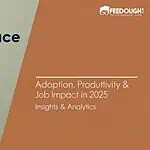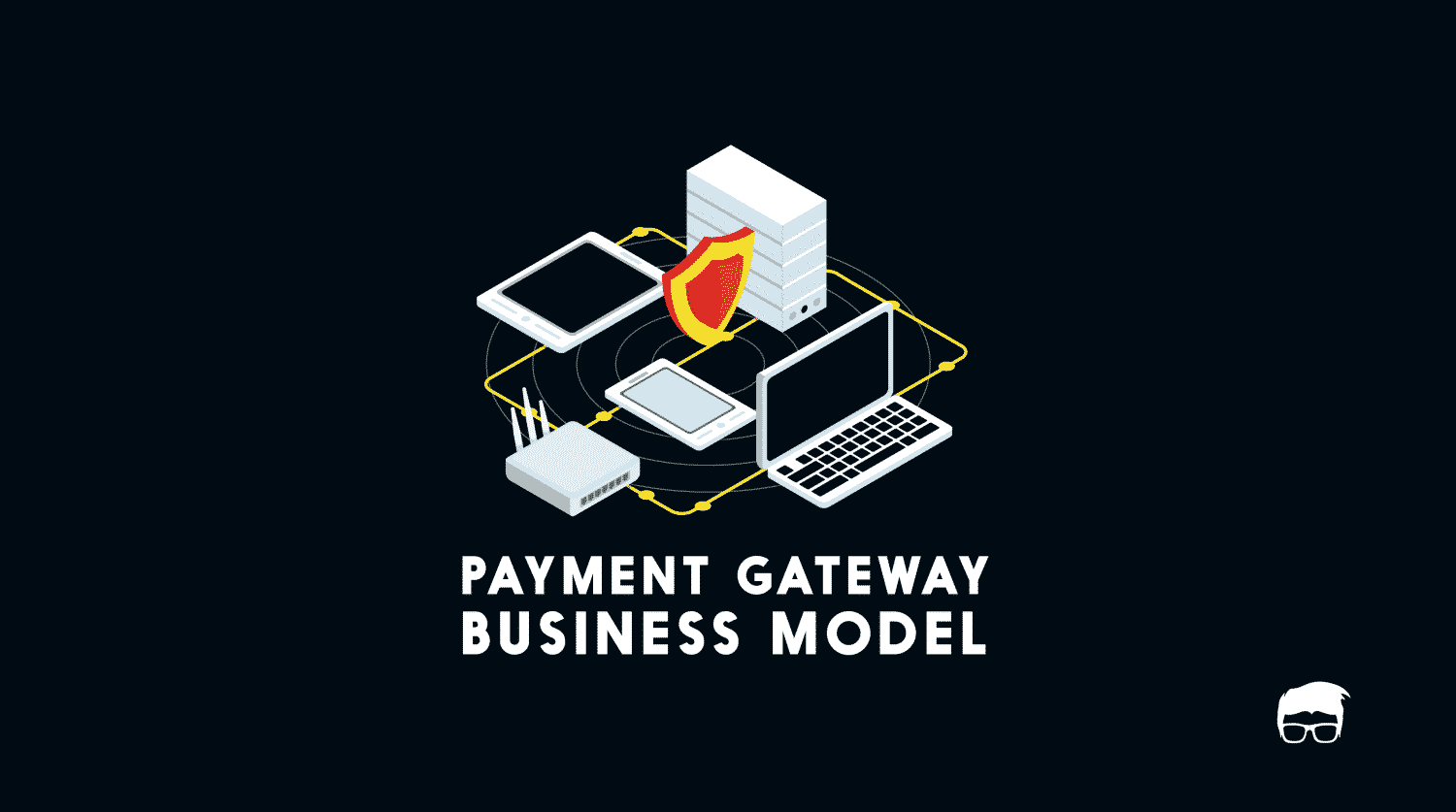80% of customer service organisations will implement generative AI by 2026. That’s not a distant prediction anymore – we’re talking about next year.
The thing is, customer expectations have reached a breaking point. People want instant responses, personalised solutions, and 24/7 availability. Meanwhile, businesses are drowning in support tickets while struggling to keep costs manageable. Traditional customer service models just can’t keep up.
That’s exactly why 78% of organisations now use AI in at least one business function, with customer service leading the charge. Companies implementing AI-driven automation are seeing 25% reductions in service costs and 40% productivity increases.
But here’s what you really need to know: which AI solutions actually deliver results, how much you should expect to invest, and what ROI looks like in real numbers. Let’s break down the data that’s reshaping customer service in 2025.
Key AI Customer Service Statistics
According to Exploding Topics and industry research:
- 70% of CX leaders say generative AI led their organisations to re-evaluate customer experiences
- 88% of call centres expected to adopt AI-powered solutions by 2025
- 45% of support teams plan to implement AI solutions within the next 12 months
- 95% of customer service leaders plan to retain human agents to define AI’s role

Here’s what’s interesting about these numbers. You might think business leaders would be rushing to replace human workers, but that’s not the case. Most executives see AI as a tool that enhances their teams rather than replaces them.
The thing is, leaders who’ve already implemented AI are seeing results that make them cautious about going too far. 50% of organisations that initially expected to reduce their workforce will abandon these plans by 2027. That tells you something about the real-world experience versus the initial hype.
What ROI are businesses seeing from AI customer service investments?
According to Desk365 and ServiceNow research:
- 25% reduction in customer service costs through AI-driven automation
- 52% reduction in time needed for complex case resolution
- 44% faster issue resolution across all ticket types
- $325 million in estimated annualised value from enhanced productivity
- 15.2% cost reduction and 15.8% revenue boost from AI implementation
- Up to 75.5% cost reduction in optimal AI implementations
What catches your attention here is how the numbers vary so widely. Some companies see modest improvements while others achieve dramatic cost cuts. The difference usually comes down to how thoughtfully they integrate AI with their existing processes.
Plus, 80% of customer support inquiries can now be handled autonomously by AI agents. That’s not just impressive—it frees up human agents to tackle the complex issues that actually need human judgment.
Consumer Experience and Satisfaction with AI
But what do customers actually think about interacting with AI instead of humans?
According to a comprehensive study published in the International Journal of Current Science Research and Review, consumer satisfaction with AI customer service is surprisingly positive:
- 4.0 out of 5 overall satisfaction rating with chatbot experiences
- 4.2 out of 5 preference rating for chatbots over human agents for simple queries
- 67% of consumers prefer self-service options for basic inquiries
- 73% appreciate 24/7 availability of AI support
- 81% prefer immediate AI responses over waiting for human agents
- 62% report satisfaction with AI resolution for routine issues

The numbers tell us customers aren’t just tolerating AI, they’re actively choosing it for certain interactions. That’s a shift from grudging acceptance to genuine preference.
What specific features do customers expect from AI customer service?
According to industry research, customer expectations reveal what makes or breaks an AI interaction:
- 58% expect AI to understand context from previous interactions
- 72% want seamless transfer to human agents when needed
- 65% prefer personalised responses based on their history
- 79% expect AI to resolve issues in one interaction
- 95% of customer interactions are expected to involve AI by 2025
Here’s what stands out: customers want smart AI that knows when to step aside. They’re not asking for AI to replace humans entirely—they want efficient handoffs when conversations get complex.
Current AI Adoption in Customer Service
What’s actually happening in customer service departments right now when it comes to AI implementation?
According to Fullview research:
- 80% of customer service organisations are implementing generative AI by 2025
- 60% of companies using AI chatbots report improved customer satisfaction
- 54% currently use AI for automated response generation
- $9.56 billion global chatbot market projected for 2025
These numbers tell us something interesting. Organisations aren’t just testing AI anymore, they’re rolling it out for real operations. The 13.8% productivity increase for agents using AI knowledge assistants shows that the technology is moving beyond hype into actual workplace improvements.
But how are companies scaling from their first AI experiment to more sophisticated implementations?
According to current adoption data:
- 85% start with chatbots for basic inquiries
- 71% use AI for ticket routing and prioritisation
- 61% expand to voice AI assistants
- 48% implement AI for predictive customer support
- 43% use AI for sentiment analysis
- 39% deploy AI for proactive customer outreach
What’s clear from this progression is that most organisations follow a similar path. They start with simple chatbots, then gradually layer in more complex capabilities. The fact that 67% of businesses plan to increase their AI customer service investment suggests this trend is accelerating, not slowing down.
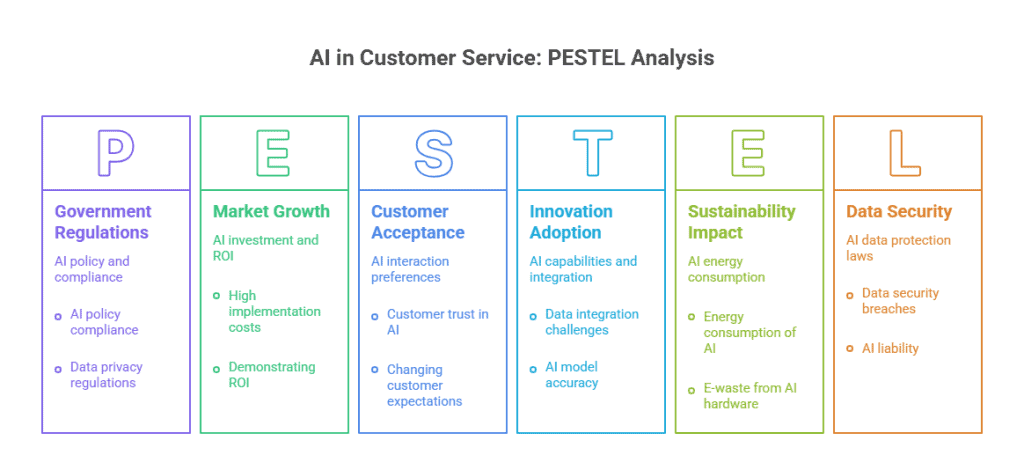
Industry Breakdown: AI Customer Service by Sector
Each sector faces unique challenges and has discovered distinct ways to leverage automation. The results vary dramatically based on industry needs, customer expectations, and the complexity of typical inquiries.
Retail Industry
According to industry research:
- 76% use AI chatbots for customer inquiries
- 58% implement AI for order tracking
- 64% use AI for product recommendations during support
- 41% deploy AI for inventory questions
- 52% report improved satisfaction scores
- 37% reduction in response time
- 29% decrease in ticket volume
Sephora transformed their support by handling 85% of routine inquiries through AI, achieving a 40% reduction in call centre volume and saving $2.3 million annually. Their AI handles everything from product matches to order status updates.
H&M’s AI assistant answers 92% of sizing questions correctly, maintaining 89% customer satisfaction while reducing human agent workload by 34%. The system helps customers find the right fit before they even place an order.
Healthcare Industry
According to healthcare industry data:
- 68% use AI for appointment scheduling
- 55% implement AI for insurance verification
- 49% use AI for medication inquiries
- 71% deploy AI for basic symptom assessment
- 62% report improved patient satisfaction
- 45% reduction in administrative calls
- 38% decrease in no-show rates
Kaiser Permanente’s AI system handles 78% of routine patient inquiries, saving the organisation $18 million annually while maintaining 92% patient satisfaction. The AI manages appointment bookings, prescription refills, and basic health questions.
Mayo Clinic processes 83% of appointment requests through AI, achieving 31% faster scheduling times and reducing patient wait times by 27%. Their system integrates with medical records to suggest optimal appointment times.
Banking and Financial Services
According to banking sector analysis:
- 82% use AI for balance and transaction inquiries
- 74% implement AI for fraud detection
- 69% use AI for loan status updates
- 56% deploy AI for investment advice
- 77% report enhanced security measures
- 43% reduction in fraud processing time
- 51% improvement in customer onboarding speed
Bank of America’s Erica has processed over 1.5 billion customer interactions with 95% accuracy, saving the bank $3.2 billion in operational costs. The AI handles account inquiries, transaction disputes, and financial planning basics.
JPMorgan Chase manages 85% of routine banking inquiries through AI, achieving 88% customer satisfaction while reducing call centre costs by 42%. Their system can process loan applications and provide instant credit decisions for qualified customers.
Technology and SaaS
According to technology sector data:
- 91% use AI for technical support
- 78% implement AI for troubleshooting guidance
- 65% use AI for billing and subscription questions
- 59% deploy AI for feature guidance and tutorials
- 84% report faster issue resolution
- 56% reduction in human escalation needs
- 47% improvement in first-contact resolution
Microsoft’s AI support system resolves 79% of technical issues automatically, saving the company $127 million annually while maintaining 91% customer satisfaction. The AI can diagnose software problems and guide users through complex troubleshooting steps.
Salesforce handles 86% of routine support cases through AI, improving team efficiency by 35%. Their AI can access customer configurations, suggest solutions, and even implement basic fixes automatically.
Benefits and Value Creation
According to comprehensive industry analysis, the benefits fall into four key categories with measurable outcomes:
- Time Efficiency Gains: 45% reduction in call handling time, 44% faster issue resolution, and 47% improvement in first-contact resolution rates
- Cost Reduction: 25% average decrease in customer service costs, with optimal implementations achieving up to 75.5% cost reduction
- Customer Satisfaction: 60% of companies report improved satisfaction scores, with successful implementations reaching 4.0/5 customer ratings
- Productivity Enhancement: 40% productivity increase and 13.8% improvement in agent performance when using AI knowledge assistants
But what do these percentages actually translate to in terms of quantifiable business results?
According to implementation studies across various industries, organisations are seeing concrete returns:
- Revenue Impact: 15.8% average revenue boost from AI implementation, with enhanced productivity generating an estimated $325 million in annualised value
- Operational Efficiency: 52% reduction in complex case resolution time and 29% decrease in overall support ticket volume
- Response Capabilities: 37% faster average response times with 24/7 availability driving increased customer retention
- Cost Optimisation: 15.2% typical cost reduction, scaling significantly based on implementation scope and automation level
The thing is, these numbers aren’t just statistics on a spreadsheet. When a company cuts resolution time in half, that means customers get back to their day faster. When support costs drop by a quarter, those savings can fund better training or new features.
What makes these benefits particularly compelling is their compound effect. Faster response times improve satisfaction, which reduces complaints, which lowers costs, which frees up resources for further improvements.
Implementation Challenges and Barriers
What are the main barriers organisations face when trying to implement AI customer service systems?
According to industry research, implementation obstacles span both technical and organisational dimensions:
- 64% of organisations struggle with data quality and integration as their primary technical challenge
- 58% face difficulties with the existing system integration and compatibility issues
- 47% encounter employee resistance to change during AI adoption
- 41% report initial investment costs as a significant barrier
- 39% lack sufficient technical expertise for proper implementation
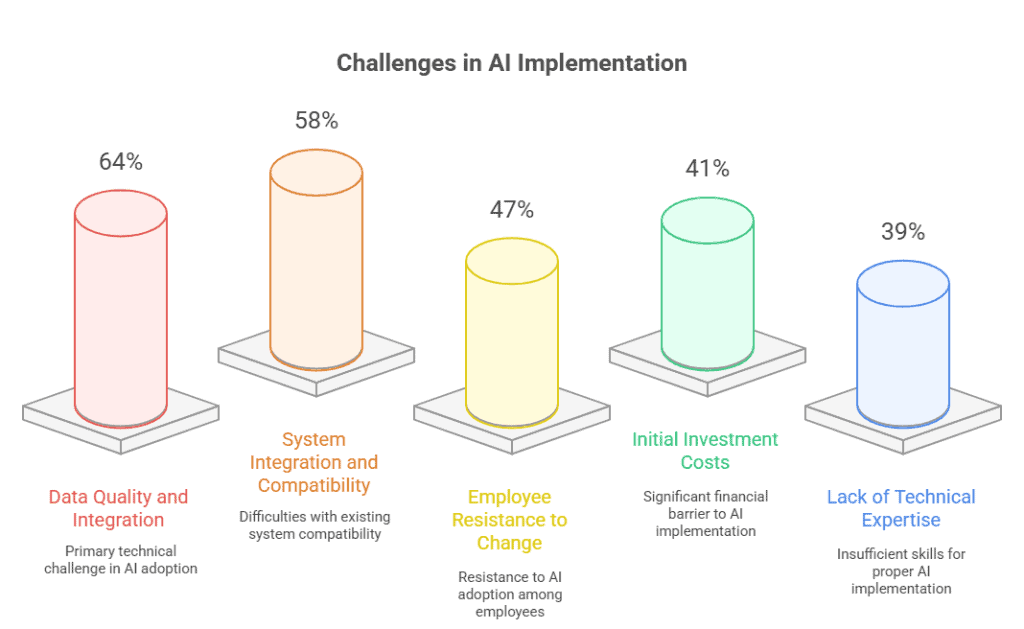
Beyond initial setup, what ongoing operational challenges do companies encounter?
According to implementation studies, operational barriers continue to impact performance:
- 52% struggle with maintaining AI system accuracy over time
- 46% find it challenging to measure and demonstrate clear ROI
- 43% face customer frustration when AI cannot handle complex requests
- 38% experience scalability issues as customer volume increases
- 34% have difficulty managing the handoff between AI and human agents
The thing is, these challenges aren’t insurmountable barriers. Remember that 95% of customer service leaders plan to retain human agents alongside AI, and successful companies like Kaiser Permanente and Microsoft have navigated these same obstacles to achieve substantial results.
What makes the difference is starting with realistic expectations, investing in proper training, and focusing on gradual implementation rather than trying to automate everything at once.
Future Predictions and Market Forecasts
What do market analysts predict for the future growth and expansion of AI customer service?
The trajectory for AI customer service shows explosive growth ahead:
- $9.56 billion global chatbot market projected by 2025, representing massive expansion from current levels
- 95% of customer interactions expected to involve AI technology by 2025
- Double-digit growth rates projected to continue through the next several years
- 88% of call centres expected to adopt AI-powered solutions by 2025

How will AI customer service technology evolve, and what adoption patterns are analysts forecasting?
According to industry analysts, the technology landscape is shifting toward more sophisticated and integrated solutions:
- Generative AI will become standard across customer service platforms, moving beyond basic scripted responses
- Voice AI technology will expand significantly beyond current chatbot capabilities
- Predictive customer service will transition from experimental to mainstream implementation
- 67% of businesses plan to increase their AI customer service investment in the coming years
- 95% of organisations intend to retain human agents alongside AI, focusing on hybrid models rather than complete automation
What’s particularly interesting is how investment patterns are evolving. Companies are shifting focus toward AI knowledge assistants and seamless human-AI handoffs rather than simple automation. The emphasis is moving toward personalisation and context awareness.
This trajectory suggests businesses that invest now in AI customer service infrastructure will be better positioned as these technologies become industry standard rather than a competitive advantage.
A startup consultant, digital marketer, traveller, and philomath. Aashish has worked with over 20 startups and successfully helped them ideate, raise money, and succeed. When not working, he can be found hiking, camping, and stargazing.
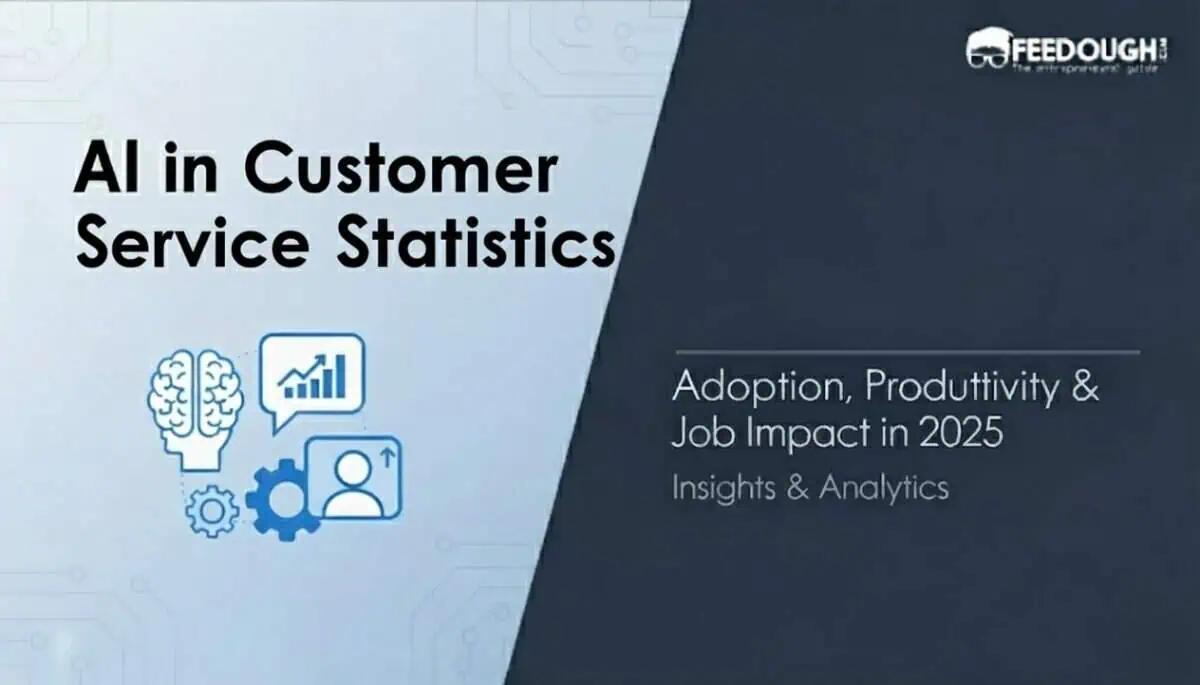
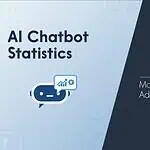
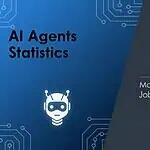
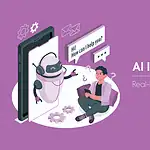
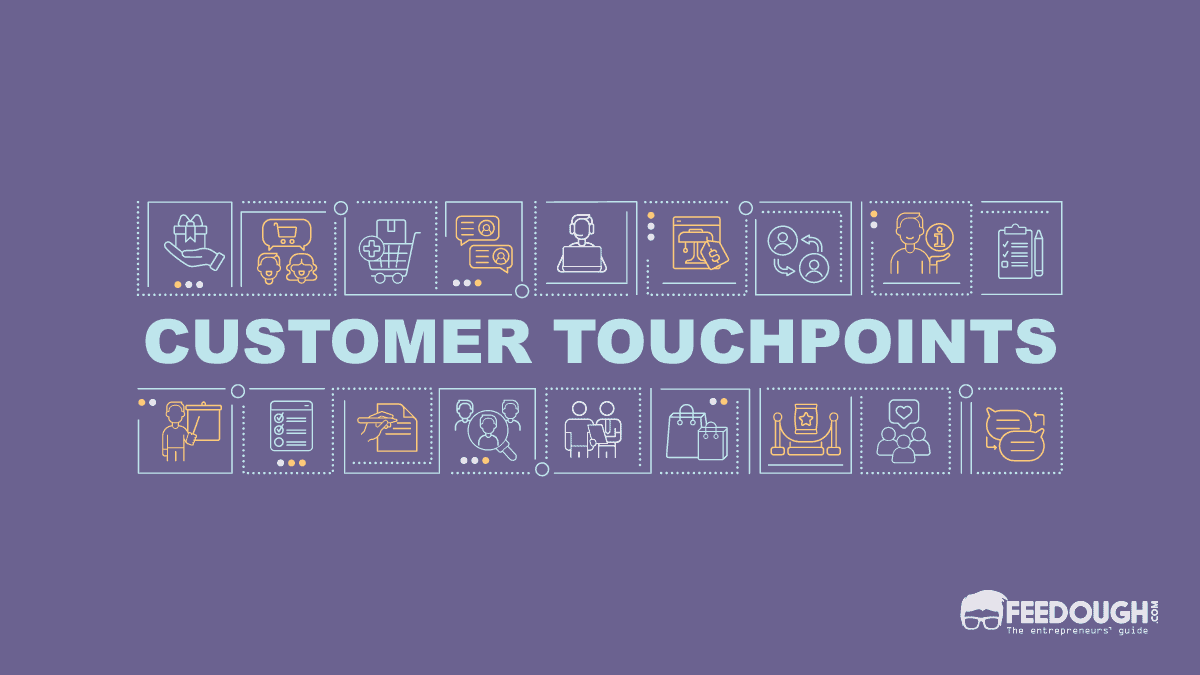
![How To Outsource Customer Service? [Detailed Guide] outsource customer service](https://www.feedough.com/wp-content/uploads/2022/09/outsource-customer-service.webp)
